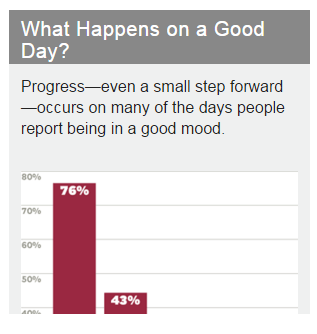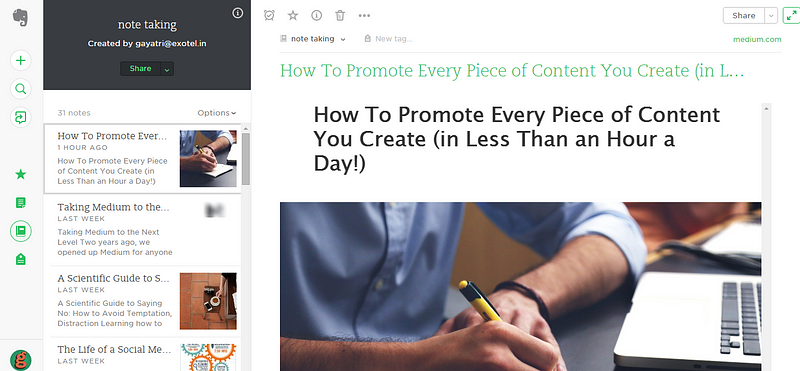It’s not easy being a content crafter. This becomes especially tough if you’re trying to build content for a B2B company. And even harder for verticals considered “boring.” Exotel is a cloud telephony product that helps businesses take care of calls. And I take care of inbound marketing for them. Now, this is not what would you call “interesting.” To add to this, I hadn’t heard of cloud telephony or inbound marketing until I landed at job at Exotel. And when I came to Exotel about 2 years ago, I was the only inbound marketer here. I turned up thinking it was going to be a breeze. After all, I had read up quite a bit about generating inbound leads via content. But when I got my hands dirty, I realised I was sucking at it.
I wrote my first post with a lot of passion. I read and researched quite a bit and spent a fair amount of time writing it. Today, when I read it, I want to bury my head in the sand. I can’t believe I thought that was good writing at one time.
But, I guess I should be worried only if I didn’t feel the cringe.
Here’s one content marketer who says,
“You are not supposed to write anything you don’t want to write. Period. How will you ever hook people with “meh” articles? You won’t.”
While I agree with the “meh” part, I don’t so much with the part about not writing anything you don’t want to write. This is where the “job” part kicks in. When you’re a content creator, it is not possible to separate it out into things you want to do and those you don’t “feel” like doing.
Jason, the co-founder of Basecamp says
“Truth be told, even today I don’t always love what I do. The paperwork, the reporting, the day-to-day minutiae that come along with responsibility for a large and growing company — none of those things make me swoon. Yet I’d still rather be running Basecamp than doing anything else. I think I’m good at it, every day I get to do challenging, creative work, and I continue to find making better project-management tools a worthy and rewarding cause. It’s also a real pleasure to work with such amazing people as I do every day of the week.”
If the job that pays the bills is not your natural passion, here are some ways you can learn to kick ass at what you do:
Create a ritual that works for you
When I started creating content for Exotel, I used to pick topics that I felt were easy to write. But that was not a process I could scale. And somewhere along the line, I felt like I wasn’t effective. I was doing a haphazard job with no real process. Having a tried and tested ritual helps you do the job and churn out content on a regular basis, and help approach the task at hand with a clear mind.
“Developing a ritual will give you a go-to tool to get you in the mood for work every time. It also helps you to overcome the distractions that stop you from starting. Your ritual will help you get stuck into your work, and before you know it you’ll be off-and-running, just because you found a way to get started in the first place.”
When we are stuck doing something that doesn’t come naturally to us, we procrastinate. And the internet is the vortex that has the potential to suck our day into it and no one will know where the entire day vanished at the end of it.
After a lot of trial and error, this is close to the process I follow.
When I start writing any piece of content, I first do a detailed research. And this research can sometimes branch into mindless reading. And mindless reading is what gives you ideas for your subsequent pieces of work. So, don’t stop yourself but always come back to the task at hand. Stick to a timer if you have to.
Your ritual doesn’t need to be a checklist of things to do. It starts with the setting in which you do your best work. Here are some of my quirks that have become a part of my ritual:
1. I love writing on the Medium interface because it keeps me free from distraction. Even the font size is perfect — neither too big nor too small. And I love how easy it is to do quick formatting to see how the piece flows instead of having to spend too much time on it.
2. When I’m doing my research, my music is playing on full blast. But the minute I start writing, I need absolute silence. NOTHING is more annoying than any disturbance in the middle of a train of thought.
3. Once I finish writing my first draft, I can’t bear to re-read what I’ve written. I need to walk away from my desk for a few minutes and just stare into nothingness. Then, I come back and take a second look at it.
4. I suck at proof-reading. So, I’m always looking for someone to check my spelling errors.
Having a ritual is only a starting point. Have your clinical approach to writing sorted, put your head down and give it your everything. And what works for one person may not work for another. Blast some music, shut yourself in a dark room, lie down on a bed, let the TV run in the background, do whatever it is that works for you. But do not stop until you have the first draft. A first draft that you are proud of.
Give yourself small wins

According to an HBR study, 76% people report progress, however small, on days they are in a good mood. And on what they claim to be bad days, the effect is reversed with 67% reporting a setback at work.
“Motivations were also affected: On progress days, people were more intrinsically motivated — by interest in and enjoyment of the work itself. On setback days, they were not only less intrinsically motivated but also less extrinsically motivated by recognition. Apparently, setbacks can lead a person to feel generally apathetic and disinclined to do the work at all.”
Your first draft may not fit your idea of “good” writing. But identify areas that sound great and can be retained. Then look at the parts that need editing. Having a well-written introduction or even a well-written section is enough of a boost. This will carry you through the endless rounds of editing.
Curate a reading list, steal shamelessly and make sure you give credit
“We have always been shameless about stealing great ideas.” — Steve Jobs
Writing is a talent. That’s what everyone has always told you and me. But in the last 2 years or so, I’ve realised that writing is sweat. It’s nothing some good old hard work won’t produce.
But everyone needs a starting point. And for me, that starting point is reading. I read like crazy. I have some favourite writers and blogs that I stalk. But, I’ve reached a point where I read a little too much for me to keep track of. So, use a few tools to ensure, I know where to look next time I’m hitting a creative low.
Take notes
I use Evernote to curate articles that I think will be relevant for me at work. I often use tags to make it more efficient because it’s not pretty work to wade through 100’s of articles.

I also immediately note down articles that can serve as blog post ideas. For example, this one

The article that inspired us, in fact, different from our final output. But this is the piece that made it to our blog http://exotel.in/blog/hiring-for-customer-happiness/
Steal but make sure you give credit where it is due. And I can’t stress the importance of this enough.
Takeaways
Being a content crafter is an important job. You are the bridge between your potential customers and your products/services. And like Katrina Owens says
“Talent is bullshit. Skill is cultivated. Passion is curated.”
All you need is to be thorough, organised and have a bit of craziness in you to be an effective content crafter.
 +91-808 8919 888
+91-808 8919 888 +91-808 8919 888
+91-808 8919 888 +966 135 181 912
+966 135 181 912



